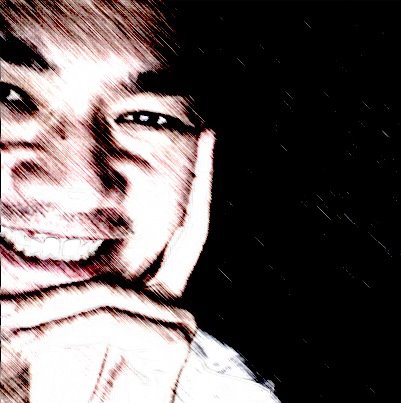" Never before, when it is life itself that is in question, has there been so much talk of civilization and culture. And there is a curious parallel between this generalized collapse of life at the root of our present demoralization and our concern for a culture which has never been coincident with life, which in fact has been devised to tyrannize over life.
Before speaking further about culture, I must remark that the world is hungry and not concerned with culture, and that the attempt to orient toward culture thoughts turned only toward hunger is a purely artificial expedient.
What is most important, it seems to me, is not so much to defend culture whose existence has never kept a man from going hungry, as to extract, from what is called culture, ideas whose compelling force is identical with that of hunger.
We need to live first of all; to believe in what makes us live and that something makes us live - to believe that whatever is produced from the mysterious depths of ourselves need not forever haunt us as an exclusively digestive concern.
...If confusion is the sign of the times, I see at the root of this confusion a rupture between things and words, between things and the ideas and signs that are their representation.
...We must insist upon the idea of culture-in-action, of culture growing within us like a new organ, a sort of second breath; and civilization as an applied culture controlling even our subtlest actions, a presence of mind; the distinction between culture and civilization is an artificial one, providing two words to signify an identical function.
A civilized man judges and is judged according to his behaviour, but even the term "civilized" leads to confusion: a cultivated "civilized" man is regarded as a person instructed in systems, a person who thinks in forms, signs, representations - a monster whose faculty of deriving thoughts, is developed to an absurdity.
If our life lacks brimstone, i.e., a constant magic, it is because we choose to observe our acts and lose ourselves in considerations of their imagined form instead of being compelled by their force. And this faculty is an exclusively human one. I would even say that it is this infection of the human race which contaminates ideas which should have remained divine; for far from believing that man invented the supernatural and the divine, I think it is man's age-old intervention which ultimately corrupted the divine within him.
What has lost us culture is our Occidental idea of art and the profits we seek to derive from it. Art and culture cannot be considered together, contrary to the treatment accorded them!
If the theatre has been created as an outlet for our repressions, the agonized poetry expressed in its bizarre corruptions of the facts of life demonstrates that life's intensity is still intact and asks only to be better directed.
Our petrified idea of the theatre is connected with our petrified idea of a culture without shadows, where, no matter which way it turns, our mind (esprit) encounters only emptiness, though space is full.
But the true theatre, because it moves and makes use of living instruments, continues to stir up shadows where life has never ceased to grope its way. The actor does not make the same gestures twice, but he makes gestures, he moves; and although he brutalizes forms, nevertheless behind them and through their destruction he rejoins that which outlives forms and produces their continuation.
For the theatre as for culture, it remains a question of naming and directing shadows: and the theatre, not confined to a fixed language and form, not only destroys false shadows but prepares the way for a new generation of shadows, around which assembles the true spectacles of life.
To break through language in order to touch life is to create or recreate the theatre; the essential thing is not to believe that this act must remain sacred.
This leads to the rejection of the usual limitations of man and man's powers, and infinitely extends the frontiers of what is called reality.
We must believe in a sense of life renewed by the theatre, a sense of life in which man fearlessly makes himself master of what does not yet exist, and brings into being. And everything that has not been born can still be brought to life if we are not satisfied to remain mere recording organisms.
Furthermore, when we speak the word "life," it must be understood we are not referring to life as we know it from its surface of fact, but to that fragile, fluctuating center which forms never reach. And if there is still one hellish, truly accursed thing in our time, it is our artistic dallying with forms, instead of being like victims burnt at the stake, signaling through the flames."
extracted from Antonin Artaud's 'The Theatre And Its Double' (Grove Press)
5 December 2005
Subscribe to:
Post Comments (Atom)



No comments:
Post a Comment